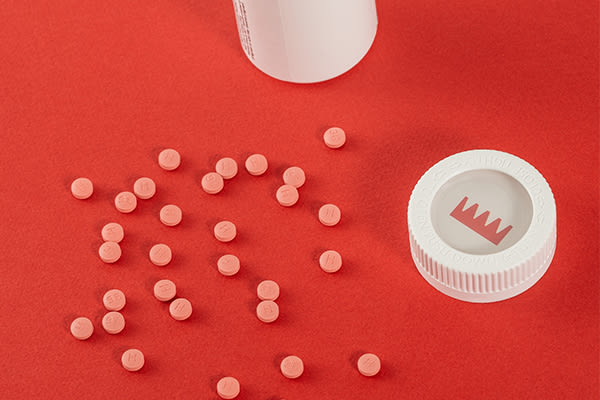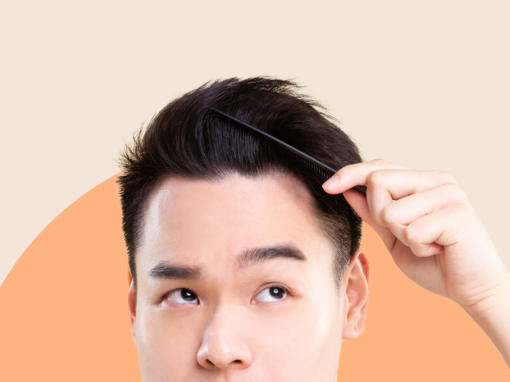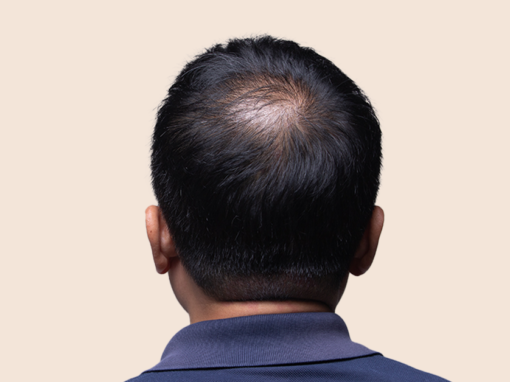Medical professionals use finasteride to treat hair loss conditions such as male pattern baldness (MPB). Regardless of age, MPB affects men who are genetically susceptible to the condition. Hair loss occurs when DHT (dihydrotestosterone), a type of male steroid hormone, binds to receptors on your hair follicles. DHT can shrink your hair follicles over time, ultimately leading to hair loss.
Finasteride is a treatment used for hair loss caused by MPB, as it tackles the root of the problem. More specifically, finasteride blocks the action of the enzyme (called 5α-reductase) that converts testosterone into DHT. This prevents your body from producing DHT entirely. In fact, some men have reported experiencing not just a stopping of their hair loss but also hair regrowth after using finasteride for some time.
But have you ever wondered what might happen if you stop taking finasteride? We’ve got the answers for you right here!
Post-Finasteride (After a Few Months)

It is important to note that the use of finasteride for treating hair should be consistent and in accordance with a strict, regimented routine. If you stop taking finasteride abruptly, you can expect to see your hair loss go back to the way it was before. This is especially apparent after some time when the medication is completely out of your system. In addition, the hair that you managed to regrow while using finasteride could also be lost within 9 to 12-months.
Some men may be tempted to stop taking finasteride because of the initial side-effects they may experience. Rest assured, the side effects of taking finasteride should, however, subside within a short period of time. These side effects are usually related to a man’s sexual function, and include:
- A loss of libido
- Difficulty ejaculating
- Erectile dysfunction
If you are still experiencing these side effects after some time, then it is advisable to consult a medical professional. You should also consult them urgently if you suffer from more debilitating side effects, such as:
- Lumps on your breast
- Nipple discharge
- Difficulty urinating
- An allergic reaction, which includes a swelling of the face, a rash, itchy skin, and breast swelling and tenderness
Is It Safe to Use Finasteride Over a Long Period of Time?

The verdict is in! Yes, it is absolutely safe to use finasteride over the long haul. A clinical study was conducted to determine the effects of consuming finasteride for prostate cancer over a seven-year period, and, quite remarkably, the individuals tested did not suffer any serious long-term consequences. Talk about a win-win, am I right?!
A second study that was conducted to determine the long-term efficacy of finasteride on hair loss also painted a similar picture. In this study, 3,177 Japanese men took a 1mg dose of finasteride daily to treat MPB. Only 23 of them suffered from an adverse reaction to the drug. 23 out of 3,177? That is less than 1 percent!
To Take Control, or Not to Take Control of Your Hair Loss?
It is totally understandable if you stop taking finasteride for medical reasons. However, if you stop taking the medication, or have not stuck to the treatment plan you set out for yourself, you are bound to experience hair loss once again. Ultimately, the choice to be one step ahead of MPB is firmly within your grasp, and it is up to you whether you want to regain your sense of identity or to give in to the condition. Make the right choice!
Speak to our medical team online to find suitable treatment plans for male pattern baldness.


